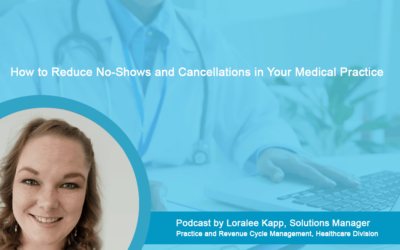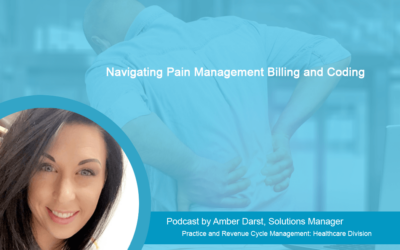With increased oversight, stricter compliance rules, and AI-driven audits, it’s critical for providers to stay ahead of the curve to avoid penalties and ensure accurate reimbursement. So, what’s changing, and how can providers prepare? Let’s get into it.
Podcast Highlights
00:31 – Segment 1: Why Are Medicare Audits Intensifying?
1:11 – Segment 2: Key Trends Shaping Medicare Audits
2:38 – Segment 3: How to Successfully Navigate Medicare Audits
3:34 – Segment 4: Leveraging Expertise to Reduce Audit Risk
4:14 – Closing Thoughts
Read Transcript
00:31 Segment 1: Why Are Medicare Audits Intensifying?
Medicare audits are designed to detect fraud, waste, and abuse while ensuring that providers follow billing regulations and documentation requirements. In 2025, audits are becoming more rigorous due to three major factors:
- The increased use of AI and data analytics for detecting irregular billing patterns.
- Stricter compliance requirements, particularly for telehealth services.
- Greater scrutiny of high-cost services and Medicare Advantage plans.
Understanding these changes is crucial for avoiding claim denials and financial repercussions.
1:11 Segment 2: Key Trends Shaping Medicare Audits
- AI and Data Analytics in Auditing
Artificial intelligence is revolutionizing Medicare audits. AI tools can quickly analyze claims data and flag potential billing errors or fraud. According to industry reports, AI in healthcare audits is expected to grow at nearly 10% per year through 2031. This means audits will become more data-driven, leaving little room for errors. - Telehealth Under the Microscope
The pandemic led to a boom in telehealth, but with its widespread adoption comes stricter Medicare audits. Providers must ensure that telehealth visits are properly documented, just like in-person consultations, to comply with Medicare guidelines. - High-Cost Services Face More Scrutiny
Surgeries, specialty treatments, and long-term care services are high-reimbursement areas, making them prime targets for audits. Providers must justify the medical necessity of these services with comprehensive documentation. - Increased Oversight for Medicare Advantage Plans
Medicare Advantage plans, which offer alternatives to traditional Medicare, will undergo more audits focused on risk adjustment coding and accurate documentation of diagnoses that affect reimbursement rates. Compliance is key to avoiding penalties.
2:38 Segment 3: How to Successfully Navigate Medicare Audits
So, what can providers do to stay compliant and avoid costly penalties? Here are four essential steps:
- Ensure Accurate Documentation – AI-driven audits leave little room for errors. Telehealth services, in particular, must be thoroughly documented, including patient history, treatment plans, and follow-up care.
- Justify Medical Necessity – High-cost services must be well-documented, detailing patient diagnoses, procedures performed, and clinical necessity.
- Stay Up to Date on Medicare Regulations – With Medicare rules constantly evolving, providers must stay informed through training, CMS updates, and internal policy reviews.
- Conduct Internal Audits – Regular internal audits help identify potential compliance risks before an external audit does, ensuring claims are accurate and properly coded.
3:34 Segment 4: Leveraging Expertise to Reduce Audit Risk
To help providers navigate audits, Medicare has programs like the Targeted Probe and Educate (TPE) initiative, where contractors work directly with providers to identify errors and improve compliance. Additionally, CMS offers training resources to help providers avoid common billing mistakes.
Partnering with compliance specialists or medical billing companies can also be beneficial. These experts ensure documentation is thorough and accurate, helping providers submit clean claims and minimize audit risks.
4:14 Closing Thoughts
As Medicare audits become more rigorous in 2025, healthcare providers must take a proactive approach to compliance. By staying informed, improving documentation, and seeking expert guidance, providers can avoid costly penalties and ensure financial stability.
That’s all for today’s episode! If you found this information useful, be sure to subscribe and share this podcast with your colleagues. For more insights on healthcare compliance and billing, stay tuned for our next episode. Thanks for listening!



